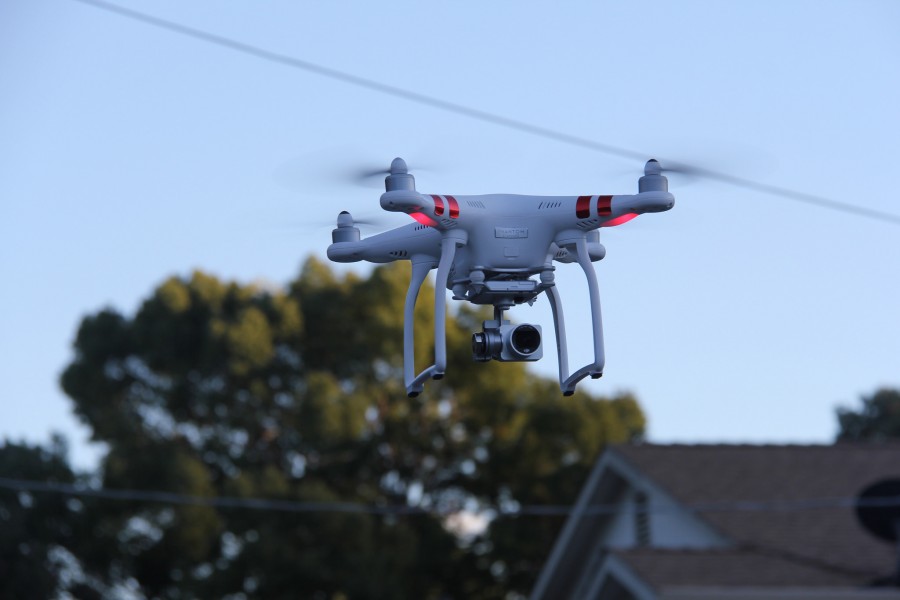We’re watching you: Drone regulations
The new line of consumer drones by DJI Phantom hovers over Martinez on November 7th during a test flight.
November 12, 2015
The buzz of drones flying over neighborhoods may become common sooner than later. A Federal Aviation Administration task force will recommend a basic set of requirements and a process for the registration of civilian drone users on Nov. 20.
The FAA is responding to public concern about “hobbyists,” or civilian drone operators, to register with the government due to privacy issues. The group task force discussed the several issues with civilian drone usage last week, including a potential requirement to have drone operators be educated on basic safety rules during the registration process.
Throughout the country, individuals are worried about privacy issues regarding drones, as reported by The Los Angeles Times. The potential of someone being able to fly up to residential windows with a camera or look over a backyard fence is very real.
During the Nov. 3rd FAA Registration Task Force Meeting regarding unmanned aircraft, FAA Administrator Michael Huerta addressed this issue.
“By some estimates, 700,000 new aircraft could be in the homes of consumers by the end of the year. This means unmanned aircraft could soon far outnumber manned aircraft operating in our nation’s airspace,” said Huerta.
With prices dropping and camera qualities rising, it seems that more drones may be purchased in the coming years. In fact, the Consumer Electronics Association estimates that the global market for consumer drones will be $300 million by 2018.
But all of those drones leaving the factory will have to be registered once they reach the consumers hands.
In a statement published in October, the Department of Transportation stated: “Without increased awareness and knowledge of the statutory and regulatory requirements for safe operation, the risk of unsafe UAS (Unmanned aircraft systems) operations will only rise.”
The FAA website offers a tool kit for civilians who would like to signify a “no drone zone.” The digital kit includes signs and logos for individuals to place on their home or to post on their website.
Jake Allred, the Environmental and Community Relations department contact for Buchanan Airfield in Concord, told the Inquirer in an email that “FAA has jurisdiction over an aircraft once they have left the ground, including drones or UAS.”
Safety and proper use of unmanned aircraft are of recent concern on DVC campus.
At DVC, individuals can see small aircrafts fly over the campus almost every hour and, at the moment, it does not pose a problem for students or staff. According to the FAA, decreased awareness of drones could lead to a collision in a matter of time.
“The County Airport has received some calls from UAS users about who they should contact to comply with new rules, as well as a few calls from concerned residents about drones being flown nearby,” Allred said.
Similarly, DVC filmed a commercial over the summer on campus using a drone; the commercial made some of the staff uneasy.
“I’m not aware that we have a drone policy. If we did, I think I’d know about them, maybe we should. But they are new enough that there is not anything yet,” Chrisanne Knox, DVC’s Director of Marketing and Communications said.
According to Knox, even though there are not rules against it, a student shouldn’t be flying a drone on campus; the commercial was an exception because it was official school business. She also said that, if a new drone law passed, DVC would enforce it as soon as they heard about it.







































































